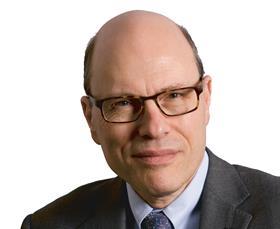
Some years ago, Ruth Morgan was working her way through the files of a murder case. Reading the judge’s summing-up, she felt what she describes as an ‘ice in the pit of your stomach’ moment. The case turned on scientific evidence and she realised that everyone involved had made an assumption about how and when certain particles had been transferred to the victim. ‘That untested assumption was presented to the court as a fact,’ she says ‘and it led directly to the conviction of two men for a crime they didn’t commit.’
Morgan, who recently became the first professor of crime and forensic science at University College London (UCL), is concerned that our ability to detect this type of evidence may be better than our ability to interpret it. Imagine you are going through security at an airport. Staff swab your hands and immediately detect firearms residue. Does that prove you have recently fired a gun? Or does it merely mean that the seatbelt you wore in the taxi had been used earlier by a shooting enthusiast? Unless security staff know that either is possible, you are likely to miss your flight.
In 2015, the FBI identified 268 cases in which defendants had been convicted as a result of microscopic hair analysis. It turned out that erroneous statements had been made by the forensic scientists in 257 of these cases – 96%. These convictions predated 2000, when microscopic analysis was replaced by DNA testing. For some defendants, though, the discovery came too late. At least 35 of the 257 had been sentenced to death. Nine had already been executed.
Could there have been miscarriages of justice from misinterpreting evidence in England and Wales? For a research paper published earlier this year, Morgan and two UCL colleagues analysed nearly 1,000 appeals over a recent seven-year period in which a convicted defendant had challenged incriminating evidence. Appeals were successful in 218 cases – 22% – although in some cases retrials were ordered. In about a quarter of the 218 appeals, new evidence had rendered the convictions unsafe. In the remainder, either the original evidence was found to have been misleading or there had been errors in the trial.
‘The fact that most of these rulings are overturned without including new evidence in the appeal suggests that they could have been avoided in the trial if these interpretations were improved,’ the authors conclude. ‘The relevance, probative value and validity of evidence are often misunderstood and miscommunicated within a criminal trial.’ As a result, they say, many defendants have been wrongly imprisoned.
Morgan is not a lawyer by training and was appointed as director of the UCL centre for forensic sciences after a doctorate in forensic geoscience. She believes that forensic science is facing a crisis — and one that is shared by the courts and police. ‘As the cracks in the system are brought to the light,’ she says, ‘action is needed to address the justice system as a whole.’
The recent ‘Secret Barrister’ book seems to have made something of an impact and people are now beginning to understand why members of the criminal bar have been refusing to take on new Crown court cases. But not even the finest advocate can achieve justice if the evidence is built on shaky foundations.
It is little more than a decade since the UK Forensic Science Service was regarded as one of the world leaders, with a significant research department that led to innovations such as low copy number DNA sequencing. But in 2005 the service was converted from a Home Office executive agency to a government-owned company. It lost money and was closed in 2012. Since then, all forensic science analysis has been provided by police forces or commercial organisations, with limited opportunities for research.
One solution to the current crisis, as Morgan sees it, involves more research into the interpretation of evidence. But for that, her centre needs a dedicated laboratory at a cost of £1m. Fundraising is now just £380,000 short of its target.
As she envisages it, the lab will answer simple but fundamental questions. How easy is it to transfer evidence such as gun-shot residue or DNA on to someone’s clothes? What happens if the clothes are washed? And how should courts interpret the weight of evidence obtained in this way? ‘It is only with this kind of research that forensic science can offer robust, reliable, transparent and balanced interpretation of a piece of evidence,’ she says.
Successive governments have squandered the reputation of forensic science – just as they have with so much of our criminal justice system. If a national research programme ever becomes a reality, Morgan believes it would put the UK back on track to being a world leader in this vital area once again.



























No comments yet